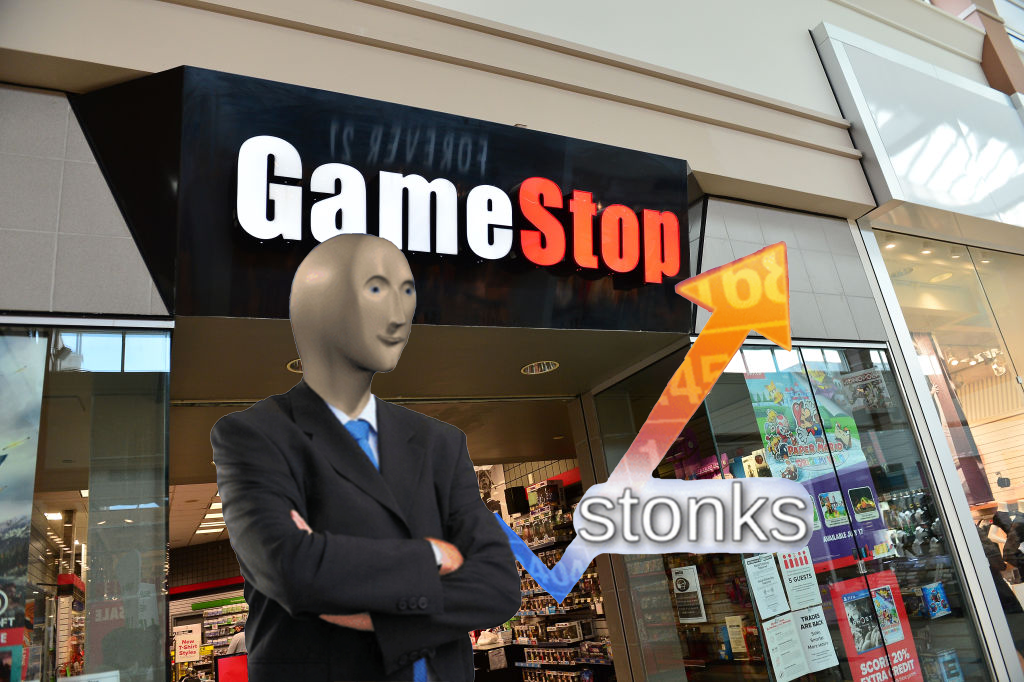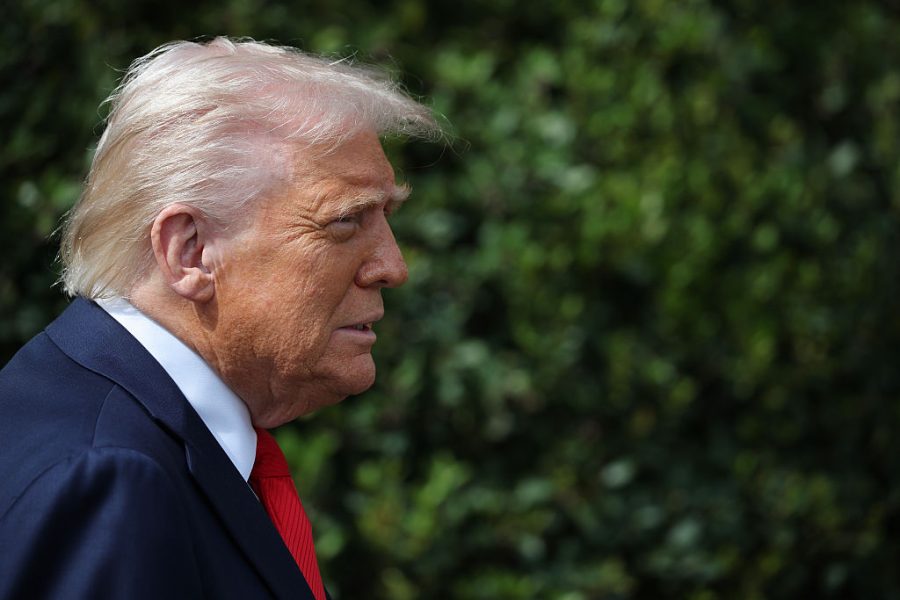Like many Americans, I have a complicated relationship with money. I love capitalism and want to be rich — but I have deeply buried resentments towards a certain type of rich person. Reconciling those two competing feelings has been a lifelong challenge. In ways that are uncomfortable to face, I’m a populist at heart. In other words, I promise I’ll stop bitching about the system when I’m rich.
I was confronted with my populist tendencies during the recent GameStop stock market rebellion by self-proclaimed ‘autists, degenerates and retards’. The members of a Reddit group, r/wallstreetbets, wreaked havoc on financial markets by driving up the price of GameStop, a ‘meme stonk’ they realized was heavily shorted by the hedge funds. Who knew that the heroes America needed and deserved were a bunch of online shitposters?
These shitposters are my people. I grew up middle class, but because of where we lived we were always adjacent to the uber-rich. We weren’t poor, but money was a constant issue and source of stress. It was a dominant reason for arguments between my parents before they got divorced, and such a prevalent fear in my own life that I wrote about my mom having a ‘nervous breakdown’ and borrowing money from my grandma in my journal when I was 10. There is something disturbing and sad about adult financial worries expressed in a child’s penmanship.
The very first lesson I learned about money was that we didn’t have enough. My father’s family comes from the original playground of the rich. Newport, Rhode Island is a quaint New England seaside getaway where folks like the Vanderbilts used to escape the pollution and heat of New York City in their summer ‘cottages’ during the Gilded Age, another time when technology and industry were disrupting life and wealth inequality was rising. While my father’s family wasn’t poor, they certainly didn’t have the kind of wealth that flocks to Newport. We were ‘locals’, blue- and white-collar workers; we certainly weren’t old money. Whenever I tell people I’m from Newport, they say something along the lines of ‘Ooh, la la! Aren’t you fancy?’
My reply is always the same: ‘No, I don’t use “summer” as a verb.’ Newport was where I spent summers as a preteen, working as a nanny and bussing tables. And this is where I learned my second lesson about money: the children of the uber-wealthy are cruel elitists and they learn it from their uber-wealthy parents. I was considered the help and that’s the way I was treated by children my own age. I so badly wanted to be included but I didn’t attend the same private schools. I didn’t go to the summer camp they’d all been attending since childhood. I didn’t winter in Palm Beach, Florida. I wasn’t on track to attend the same Ivy League school my father and my grandfather attended. I knew girls who had debutante balls. In 1993.
So when those brave little internet rascals started exposing the system of free markets as perhaps not being so free after all, the scorned preteen within me was awakened. All those feelings of inadequacy, all the nights crying because they teased me or were cruel to me or left me out. They all boiled to the surface and I found myself (along with a large portion of America) united with the Redditors proclaiming ‘HOLD THE LINE’ as they boldly took on the hedge funds.
It was a million anonymous Davids vs a shapeshifting Goliath. That Goliath probably looked different for everyone. For me it was men in Nantucket reds with whale belts, laughing at the poors from their J-Class yachts. I’ve received a lot of fair criticism for using my platform, Twitter, to fuel populism. The most common pushback I heard when I cheered for the Reddit heroes was, ‘Bridget, you’re giving in to the us vs them mentality.’ This is something I try very hard to push back against in myself and in society — so it’s fair to call me out for my hypocrisy.
However, many of the commenters are missing the big picture: those brave little rascals are holding a line because holding it makes them part of something big, something important. There may be spoils of war, or they may end up its casualties. But they were already doomed. So when you have nothing to lose but the scraps from the rich man’s table, well, a man’s gotta have his pride.
The real challenge for America (and for me) is not to throw the baby of capitalism out with the disgusting bathwater of Wall Street avarice. Through most of my twenties, I sounded exactly like AOC. But as I aged, I realized that although we might want similar things for Americans — quality healthcare, affordable education, paid maternity leave, wages that increase as the cost of living does — we want to go about getting it in different ways. Capitalism has objectively made life better for billions. Cronyism makes it worse.
Something about the system is broken. If a bunch of online shitposters can bring down the whole economy, maybe it’s not them we should be focusing on. Putting the focus on the folks gambling with their own money conveniently ignores valid grievances millions of people have with a system in which hedge funds can gamble with other people’s retirements by betting against brick-and-mortar businesses in a pandemic.
So where does this leave my complicated relationship with money? I don’t know but maybe I’ll find out when my meme stonks go to the moon and I buy my first yacht.
This article was originally published in The Spectator’s March 2021 US edition.

























